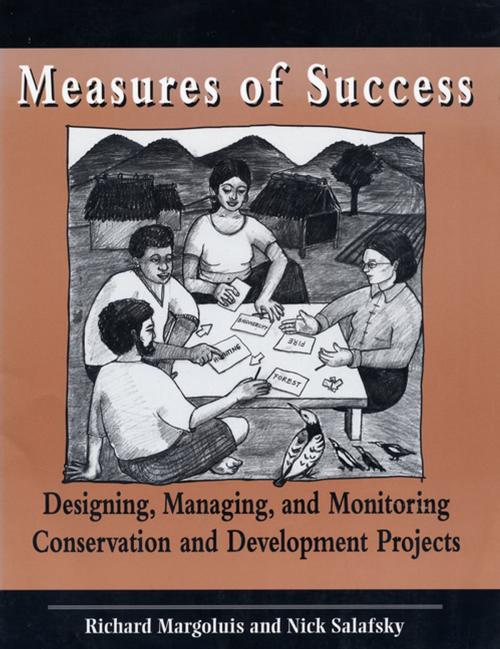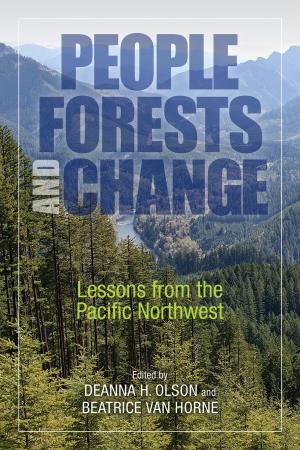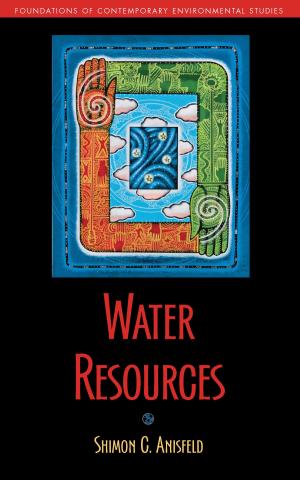Measures of Success
Designing, Managing, and Monitoring Conservation and DevelopmProjects
Nonfiction, Science & Nature, Nature, Environment, Ecology, Environmental Conservation & Protection| Author: | Nick Salafsky, Richard A. Margoluis | ISBN: | 9781597263276 |
| Publisher: | Island Press | Publication: | March 6, 2013 |
| Imprint: | Island Press | Language: | English |
| Author: | Nick Salafsky, Richard A. Margoluis |
| ISBN: | 9781597263276 |
| Publisher: | Island Press |
| Publication: | March 6, 2013 |
| Imprint: | Island Press |
| Language: | English |
Measures of Success is a practical, hands-on guide to designing, managing, and measuring the impacts of community-oriented conservation and developmprojects. It presents a simple, clear, logical, and yet comprehensive approach to developing and implementing effective programs, and can help conservation and developmpractitioners use principles of adaptive managemto test assumptions about their projects and learn from the results.The book presents a systematic approach to improving the focus, effectiveness, and efficiency of projects, with specific guidelines and advice on:designing a realistic conceptual framework based on local site conditions developing clearly defined goals, objectives, and activities creating a monitoring plan that can be used to assess whether goals and objectives are being met integrating social and biological science techniques to collect the mrelevant and useful data in the mcost-effective way using the information obtained through the monitoring plan to modify the project and learn from the resultThe text is developed in eight chapters that follow the structure of a planning process from conception to completion, with the chapters linked by four scenarios that serve as teaching case studies throughout the book. Examples from these scenarios illustrate the processes and tools discussed, and each scenario case study is presented in its entirety in an appendix to the volume. The approach has been developed and field tested by practitioners working in many differprojects in Latin America, Africa, and Asia, and their experience and input ensure that the guide is both practical and useful.*Measures of Success* is the only work of its kind currently available, and represents an invaluable resource for field-based practitioners, project managers, and local community leaders, as well as for international NGO staff, college and university teachers and students, researchers, and governmofficials.
Measures of Success is a practical, hands-on guide to designing, managing, and measuring the impacts of community-oriented conservation and developmprojects. It presents a simple, clear, logical, and yet comprehensive approach to developing and implementing effective programs, and can help conservation and developmpractitioners use principles of adaptive managemto test assumptions about their projects and learn from the results.The book presents a systematic approach to improving the focus, effectiveness, and efficiency of projects, with specific guidelines and advice on:designing a realistic conceptual framework based on local site conditions developing clearly defined goals, objectives, and activities creating a monitoring plan that can be used to assess whether goals and objectives are being met integrating social and biological science techniques to collect the mrelevant and useful data in the mcost-effective way using the information obtained through the monitoring plan to modify the project and learn from the resultThe text is developed in eight chapters that follow the structure of a planning process from conception to completion, with the chapters linked by four scenarios that serve as teaching case studies throughout the book. Examples from these scenarios illustrate the processes and tools discussed, and each scenario case study is presented in its entirety in an appendix to the volume. The approach has been developed and field tested by practitioners working in many differprojects in Latin America, Africa, and Asia, and their experience and input ensure that the guide is both practical and useful.*Measures of Success* is the only work of its kind currently available, and represents an invaluable resource for field-based practitioners, project managers, and local community leaders, as well as for international NGO staff, college and university teachers and students, researchers, and governmofficials.















